.webp)
© History Oasis
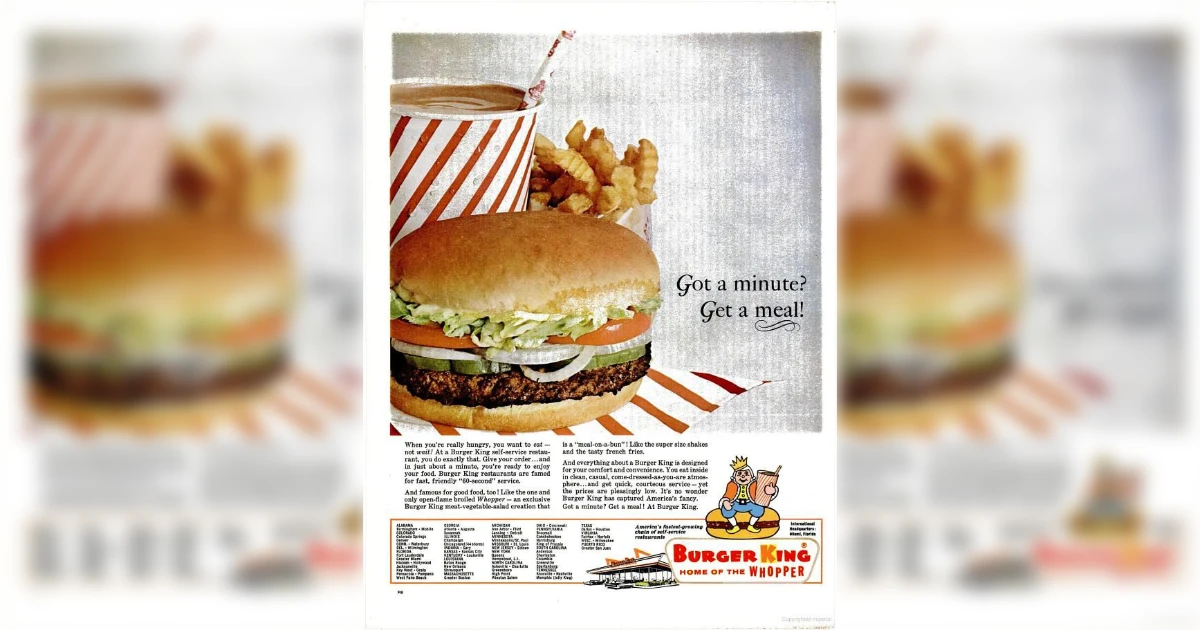
1955-1970s
Burger King's first fast food mascot wasn't really a mascot at all—just a painted figure on restaurant signs. He sat on what the company called a "burger throne," holding a drink and wearing a crown. Nothing fancy, but it worked. The image appeared above the first Miami location in 1955 and spread to other restaurants as the chain grew.
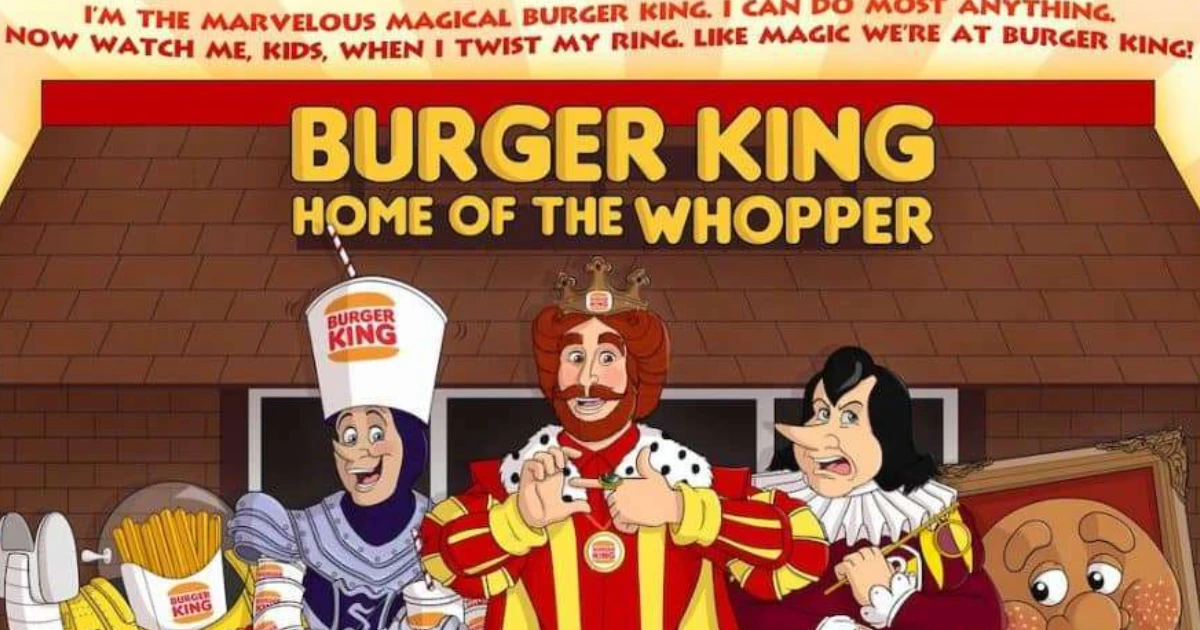
Early 1970s-1976
We don't know who, but somebody in Burger King's marketing department decided their painted King needed an update. In the early 1970s, the burger chain launched an animated version of the King. He was a small, normal-looking character who showed up in TV commercials. Allen Swift gave him a voice, and the king would visit restaurants to hand out toys to kids. He even came with a simple slogan: "Burger King, where kids are king."
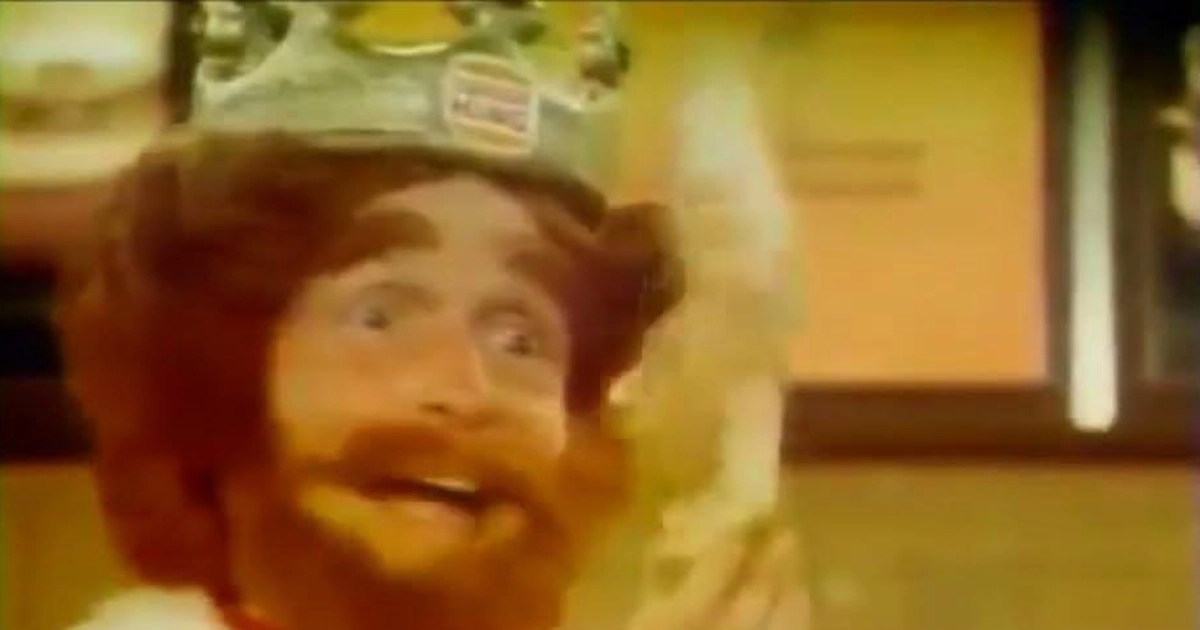
1976-1989
Dick Gjonola put on a red beard and became Burger King's answer to Ronald McDonald. This live-action king ruled something called the "Burger King Kingdom" and performed magic tricks—mostly basic sleight-of-hand, though sometimes the commercials used camera tricks. His "Magic Ring" could make food appear. The whole thing was designed to compete with McDonald's elaborate McDonaldland campaign.
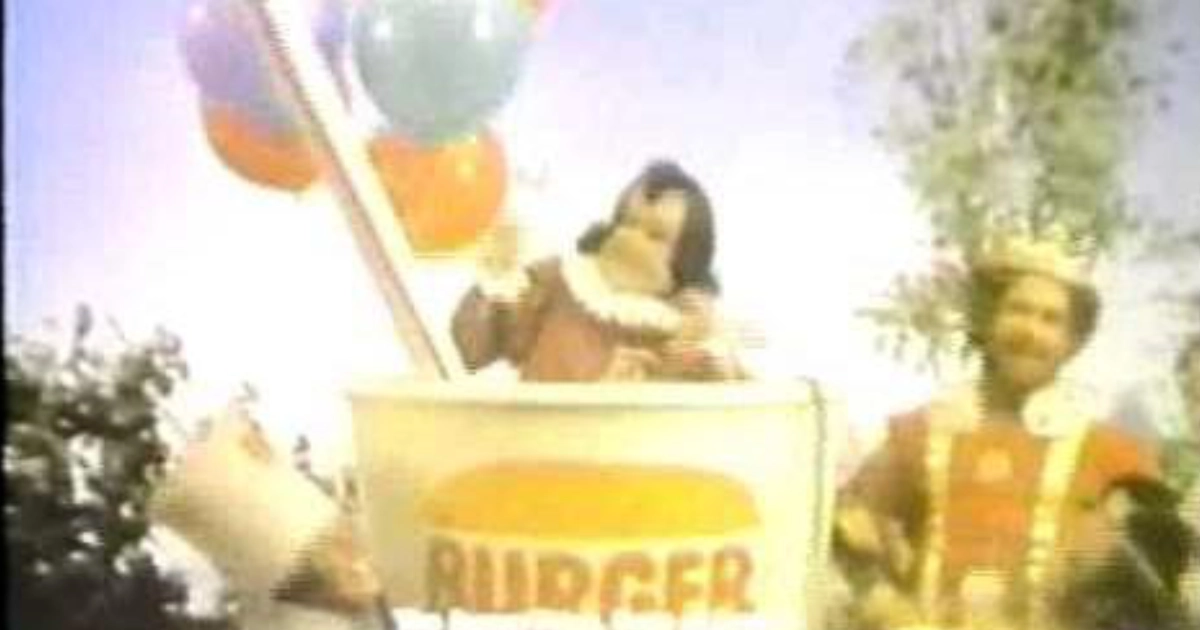
1976-1989
Imagine a knight whose armor is made entirely of Burger King cups. That's Sir Shake-A-Lot. Bob Lydiard played this character who couldn't stop shivering because he drank too many milkshakes. The gimmick was obvious but memorable. Decades later, his voice showed up in a 2006 Burger King video game.
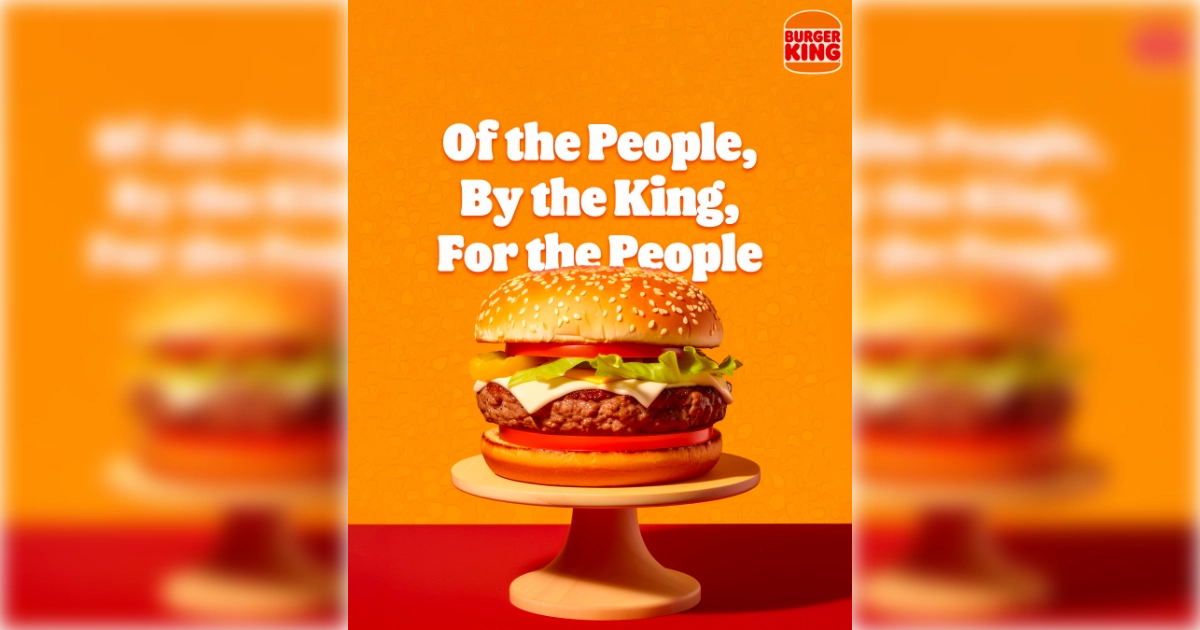
1976-1989
Frank Welker voiced a hamburger that lived in a picture frame. The Burger Thing was designed to look like a 3-D painting and had the personality of W.C. Fields—gruff, sarcastic, always ready with a joke. Welker would go on to voice hundreds of cartoon characters, but this talking burger was one of his stranger early gigs.
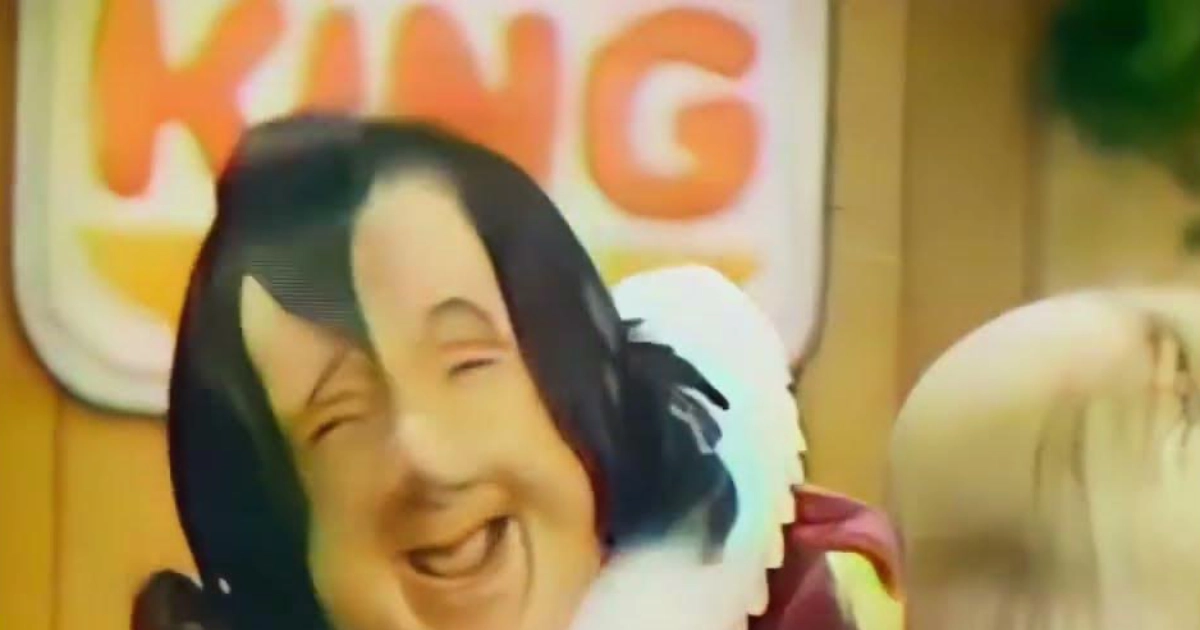
1976-1989
Every hero needs a villain, so Burger King created the Duke of Doubt. Played by James Harder as a skeptical nobleman who spent every commercial trying to prove the Magical Burger King was a fraud. He never succeeded. Each commercial ended with his defeat and the line "No doubt about it, it's Burger King!" The formula never changed, but it worked.
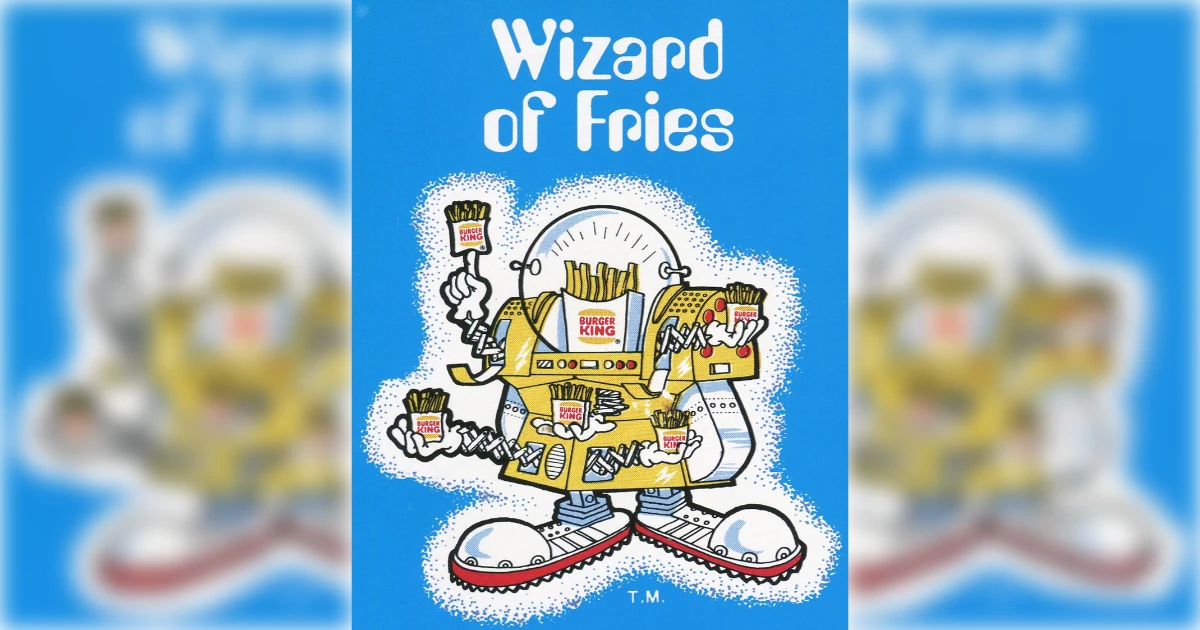
1976-1989
Tress MacNeille voiced a robot with french fries in a glass dome where its head should be. The Wizard of Fries could perform "multi-frying"—taking one fry and magically creating dozens more. The design clearly copied R2-D2 from Star Wars, which had just become a cultural phenomenon. Nobody tried to hide the influence.

1989-2004
Burger King hired Saatchi & Saatchi to create eight diverse cartoon kids who would appeal to 1990s children. Kid Vid wore a visor and loved video games. Boomer played sports. I.Q. was the smart one with glasses. Jaws ate everything. These mascots were relatable characters that looked like real kids, not fantasy creatures.
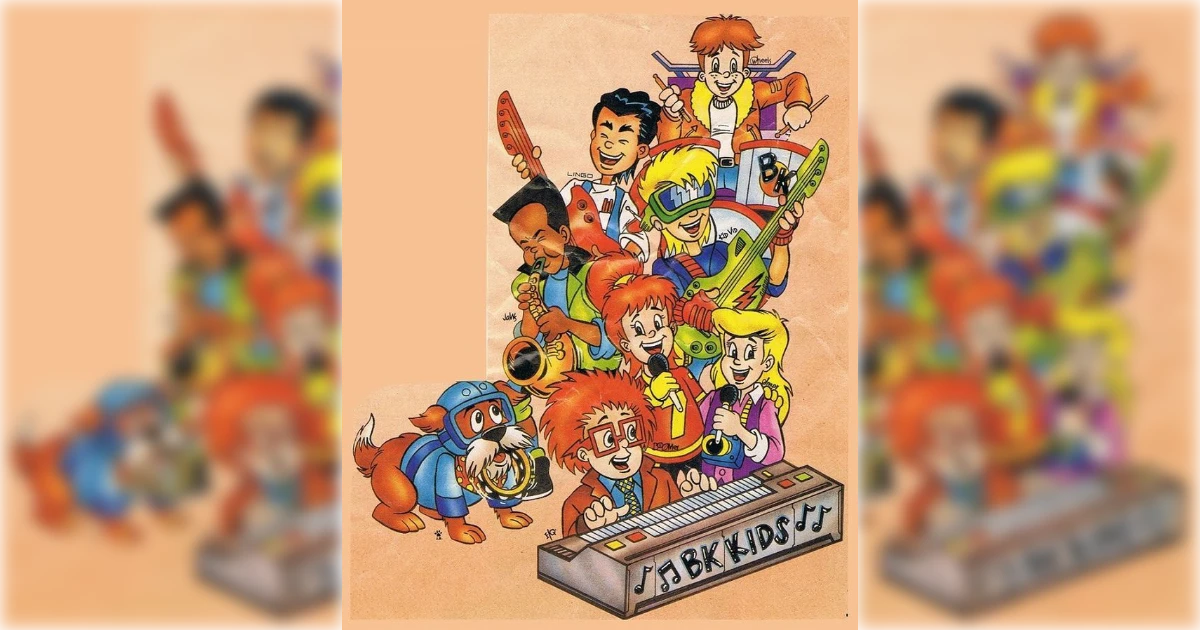
1997-2004
Near the end of the Kids Club era, Burger King added Jazz—an Asian girl who played trumpet and wore a beret. She had perfect pitch and could throw her voice like a ventriloquist. But Jazz arrived too late to matter much. The Kids Club concept was already fading, and she appeared in a few commercials before the whole campaign ended.
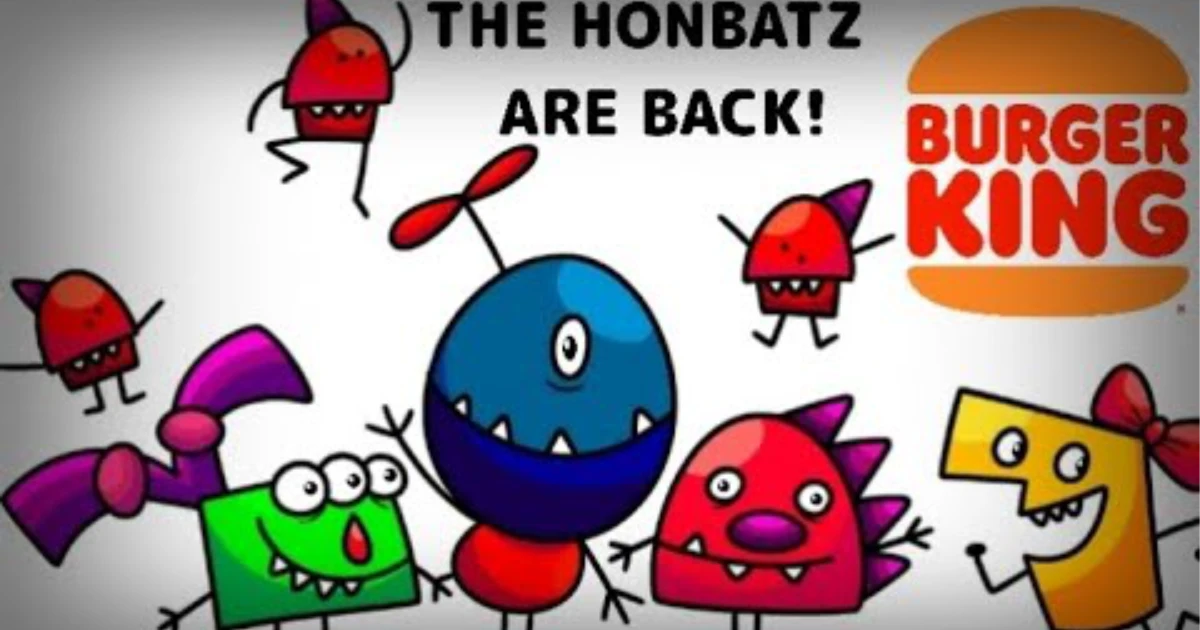
2004-2005
After the Kids Club ended, Burger King tried something completely different. The burger joint created hyperactive cartoon monsters called the Honbatz. These creatures bounced around commercials with manic energy, promoting kids' meals through pure chaos. Parents found them annoying. Kids found them annoying. Burger King quickly realized their mistake and retired the characters.
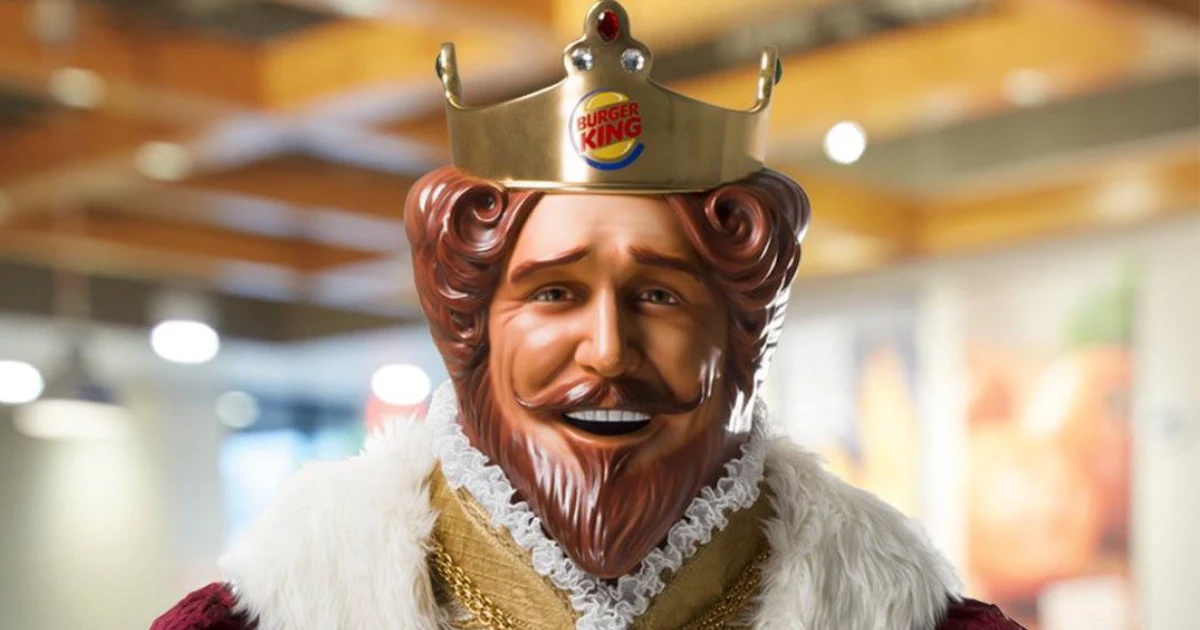
2004-2011, 2015-present
An advertising executive found an old Burger King helium tank head on eBay. That discovery launched the most infamous mascot in fast food history. The new King wore an oversized plastic mask and appeared in unexpected places—next to people's beds, behind doors, at boxing matches. Burger King spent $1 million to have him join Floyd Mayweather's entourage. The company retired him in 2011 after admitting he scared away customers, then brought him back anyway.